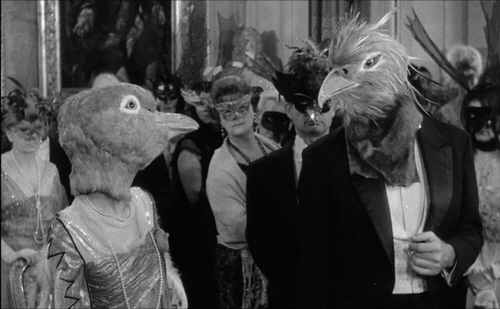
There’s a flaw in the opposition to the fascists. It stems from this: The fascists are enacting a radical change—the destruction of the “administrative state.” The opposition to this action is the support of the status quo. The liberal position becomes a conservative view of fighting against change. We oppose destruction of the government. Not the current version of government, we advocate preserving the system that provides a framework for the peaceful evolution of government, laws and society. But with that, we end up supporting the preservation of the highly flawed current state of the system.
The problem is that everyone hates the government. No one is satisfied with the status quo. Everyone agrees on the negative, even though there’s no general agreement on a positive direction. There’s no need to agree on the specific negative—that’s the tie that binds the bundle of sticks.
We hold these truths to be self-evident, that all men are created equal, that they are endowed by their Creator with certain unalienable Rights, that among these are Life, Liberty and the pursuit of Happiness. That to secure these rights, Governments are instituted among Men, deriving their just powers from the consent of the governed. That whenever any Form of Government becomes destructive of these ends, it is the Right of the People to alter or to abolish it, and to institute new Government, laying its foundation on such principles and organizing its powers in such form, as to them shall seem most likely to effect their Safety and Happiness. Prudence, indeed, will dictate that Governments long established should not be changed for light and transient causes; and accordingly all experience hath shown that mankind are more disposed to suffer, while evils are sufferable, than to right themselves by abolishing the forms to which they are accustomed. But when a long train of abuses and usurpations, pursuing invariably the same Object evinces a design to reduce them under absolute Despotism, it is their right, it is their duty, to throw off such Government, and to provide new Guards for their future security.
This radical statement serves the ends of both fascists and small ‘r’ republicans. And the key phrase is the opening remark.
An additional ambiguity haunts the mounting of an opposition. This stems from one of the nation’s founding documents, the preamble to the Declaration of Independence.
We hold these truths to be self-evident, that all men are created equal, that they are endowed by their Creator with certain unalienable Rights, that among these are Life, Liberty and the pursuit of Happiness.
“All men are created equal” has been interpreted to mean “humanity” is created equal and been extended far beyond the narrow reading that it refers to white, male land owners of a certain class. The extension of “All men” to include all humanity, and possibly even some non-human life forms, is the target of the current regime. Through brute force they aim to demonstrate that these extensions can be invalidated—and that even laws will not provide safe haven.
Ten years passed between the Declaration of Independence (7/4/1776) and the Constitution (9/17/1787). In that time, the language changed from “all men” to “We the People of the United States…”.
We the People of the United States, in Order to form a more perfect Union, establish Justice, insure domestic Tranquility, provide for the common defense, promote the general Welfare, and secure the Blessings of Liberty to ourselves and our Posterity, do ordain and establish this Constitution for the United States of America.
It’s the constitutional democratic republic described above that is being destroyed. “We the people…” is being transformed into an invitation-only social club where power and material wealth are the keys to value.
The American experiment was a radically new direction in governance. But today the shine is off its radical qualities, and we’re left with complaints about its actual implementation. The promise of America remains, but grows dimmer with every passing day. The opposition is left with fighting for kitchen table issues. That’s weak tea when a revolution is going on.
Comments closed






